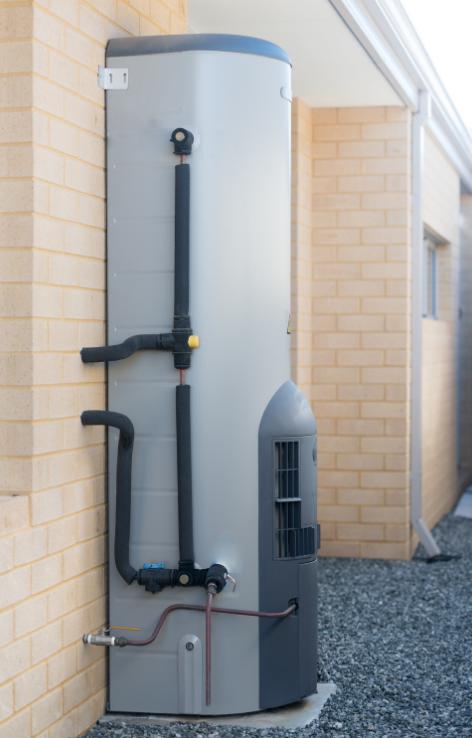Tips To Save Power On Your Hot Water System
- Written by NewsCo
Did you know that water heating bill accounts for approximately 23% of the total utility bills for Australian households?
Since most of us take the hot water supply in our home for granted, not realizing how much of it is wasted on an ordinary day. Laundry, dishes, showers, and cleaning are all made better with hot water, but can we stop misusing it?

Here are a few ways to save money and power spent on your hot water system and reduce those bills:
-
Insulate Your Tank
People generally don't replace their hot water systems for decades at end. But the trouble is that even if an older tank seems to be performing very well, it is easier for it to lose heat.
If your water heater tank is fairly old, it's time to get maintenance and check up to ensure its health and longevity. This way, you'll be able to keep your energy bills at a minimum and enhance the tank's life.
Another reliable way to reduce power wastage and costs is to wrap the tank with an insulating blanket.
Newer models usually come with plenty of built-in insulation. But using a blanket for older models can save around 4-9% on your average water heating bill, reducing heat loss by 25-45%.
However, make sure you follow the tank manufacturer's recommendations and don't cover the heater's burner, top, bottom, and thermostat.
-
Consume Less
For the driest inhabited continent on the planet, we sure do use a lot of water. It is estimated that Australian households consume over 1,800 gigaliters of water per year. And this number is only climbing.
This means that now would be a good time to play your role in saving the resource. Reduce your shower time, install low-flow faucets and showerheads, and turn off the taps when not in use to cut down your water bill.
Additionally, use your dishwasher's "economy" setting and avoid prewashing since modern machines can take care of dirty dishes while conserving water. Scape the leftovers into the trash and then load the dishes to reduce your water bills.
-
Turn Down The Tank's Thermostat
Tank thermostats usually come at 140 degrees Fahrenheit setting, but local homes can get away with water temperatures of 100 to 120 degrees Fahrenheit. The difference in heat is barely noticeable, and the temperatures fulfil your needs without mineral build up and pipe corrosion.
The fact is that turning down your tank's thermostat helps to decrease your power bills.
-
Place Heat Traps
These traps let cold water flow into the tank but don't let the hot water and unnecessary convection flow out from the unit. New water heaters are now sold with built-in heat traps. However, if your unit is over ten years old, get professional help to install one.
-
Drain The Sediment
It is natural for sediment to build up in a tank, which becomes an obstacle during heat transfer. As a result, it is essential to drain the tank once a year or take out some water once every three months. This helps to maintain its efficiency and reduce energy wastage.
-
Insulate Pipes
While insulating the tank is essential when there is no in-built insulation, you can also insulate the water pipes for maximum effectiveness. It is best to insulate the first six feet of cold and hot water pipes that link to the unit. This additional insulation reduces fire hazards while also conserving heat to avoid overworking the system to reheat it.
-
Replace Appliances On Time
Appliances have a life through which they perform efficiently, after which they might work but result in energy wastage. If you have appliances over ten years old, you should consider replacing them with newer and more energy-efficient models.
Some new designs include those that consume less water, making them more efficient and reducing your water bills as a result.
-
Fix Leaky Faucets
A few drops of water leaking from a faucet may not seem like trouble, but it results in water and money wastage within a short time. Do not delay repairs leaky faucets and check outdoor spouts and valves as well to save water and reduce your bills.
-
Use Cold Water Where You Can
This is quite an obvious solution, but most people seem to forget about it. It is best to use cold water during laundry loads, especially in the rinse cycle and everyday grooming like washing hands, brushing teeth, etc. Such actions are bound to reduce your utility bill by saving hot water usage significantly.
-
Install A Timer
If you consider a standard water heater tank, it always runs and wastes electricity, as a result. To save this power wastage, you should install a timer to turn the heater off at night and conserve energy. This could also increase the lifetime of the unit by a few years.
Conclusion
Power wastage through a hot water system is common in households, and it results in higher utility bills that one can easily avoid. Simple actions like using less hot water, preventing prewashing, insulating a water tank, etc., can help you see a noticeable difference in your bills.
